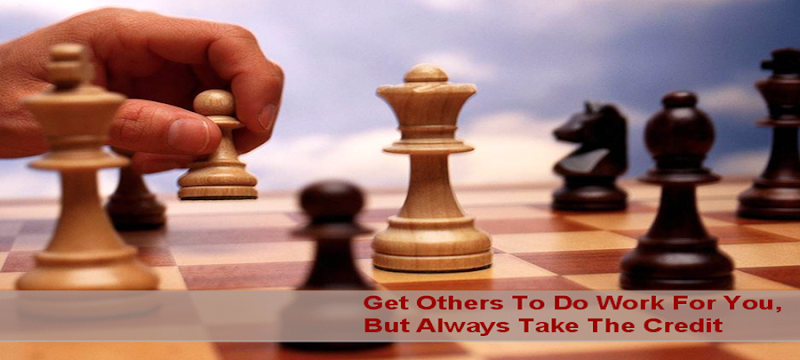Ashura9
JF-Expert Member
- Oct 21, 2012
- 740
- 485
The 48 Laws of Power
Law 1: Never Outshine The Master

Always make those above you feel comfortably superior. In your desire to please or impress them, do not go too far in displaying your talents or you might accomplish the opposite – inspire fear and insecurity. Make your masters appear more brilliant than they are and you will attain the heights of power.
King Louis XIV and his Finance Minister Fouquet
In 17th century France, Finance Minister Nicholas Fouquet had spent enormous sums in building a magnificent château on his estate of Vaux-le-Vicomte. He then threw a lavish party to show off his connections, cultivated manner and charm. Thinking this move would make him an indispensable asset to the king, Fouquet had actually offended his master who did not like the fact people were more charmed by his finance minister than by him. He unintentionally outshone his master, King Louis XIV, making the King feel insecure. In 1661, at age 23, Louis XIV visited Vaux-le-Vicomte, the country estate of his finance minister, Nicolas Fouquet, and was outraged by its magnificence. The King found a convenient excuse to get rid of Fouquet who then spent the next 20 years of his life in prison. King Louis XIV went ahead to build Palace of Versailles which was much more grander and lavish than the Chateau built by Fouquet to display his charms and connections.
How Galileo used the Law in his favor?
Galileo was clever in observing this law by giving glory to his patrons. In order to solve his perennial problem of funding, he dedicated his discovery of the moons of Jupiter to the Medici, since the royal symbol of the Medici family was the planet Jupiter. He then commissioned an emblem for them, with each moon representing one of the sons who revolved around the patriarch. The Medici family became his major patron, appointing him their official court mathematician and philosopher, thereby giving him a more comfortable life and a steady salary.
Lesson:
• Present your ideas in a way that they echo your boss’s thought
• Act less smarter than your boss
• Do not take your position at work or in life for granted
• Always make sure to make it seem like you want to seek the superior's expertise and advice. Discreet flattery is very powerful.
Law 1: Never Outshine The Master

Always make those above you feel comfortably superior. In your desire to please or impress them, do not go too far in displaying your talents or you might accomplish the opposite – inspire fear and insecurity. Make your masters appear more brilliant than they are and you will attain the heights of power.
King Louis XIV and his Finance Minister Fouquet
In 17th century France, Finance Minister Nicholas Fouquet had spent enormous sums in building a magnificent château on his estate of Vaux-le-Vicomte. He then threw a lavish party to show off his connections, cultivated manner and charm. Thinking this move would make him an indispensable asset to the king, Fouquet had actually offended his master who did not like the fact people were more charmed by his finance minister than by him. He unintentionally outshone his master, King Louis XIV, making the King feel insecure. In 1661, at age 23, Louis XIV visited Vaux-le-Vicomte, the country estate of his finance minister, Nicolas Fouquet, and was outraged by its magnificence. The King found a convenient excuse to get rid of Fouquet who then spent the next 20 years of his life in prison. King Louis XIV went ahead to build Palace of Versailles which was much more grander and lavish than the Chateau built by Fouquet to display his charms and connections.
How Galileo used the Law in his favor?
Galileo was clever in observing this law by giving glory to his patrons. In order to solve his perennial problem of funding, he dedicated his discovery of the moons of Jupiter to the Medici, since the royal symbol of the Medici family was the planet Jupiter. He then commissioned an emblem for them, with each moon representing one of the sons who revolved around the patriarch. The Medici family became his major patron, appointing him their official court mathematician and philosopher, thereby giving him a more comfortable life and a steady salary.
Lesson:
• Present your ideas in a way that they echo your boss’s thought
• Act less smarter than your boss
• Do not take your position at work or in life for granted
• Always make sure to make it seem like you want to seek the superior's expertise and advice. Discreet flattery is very powerful.










